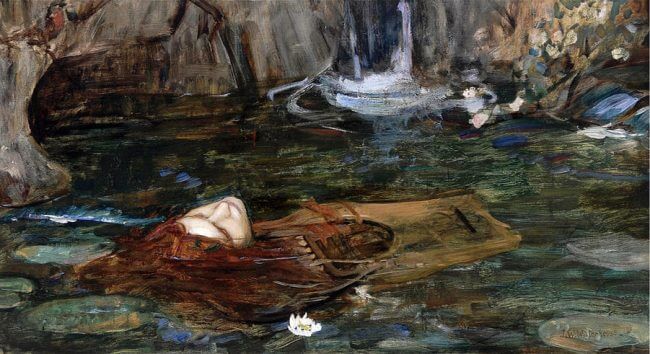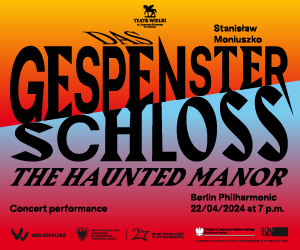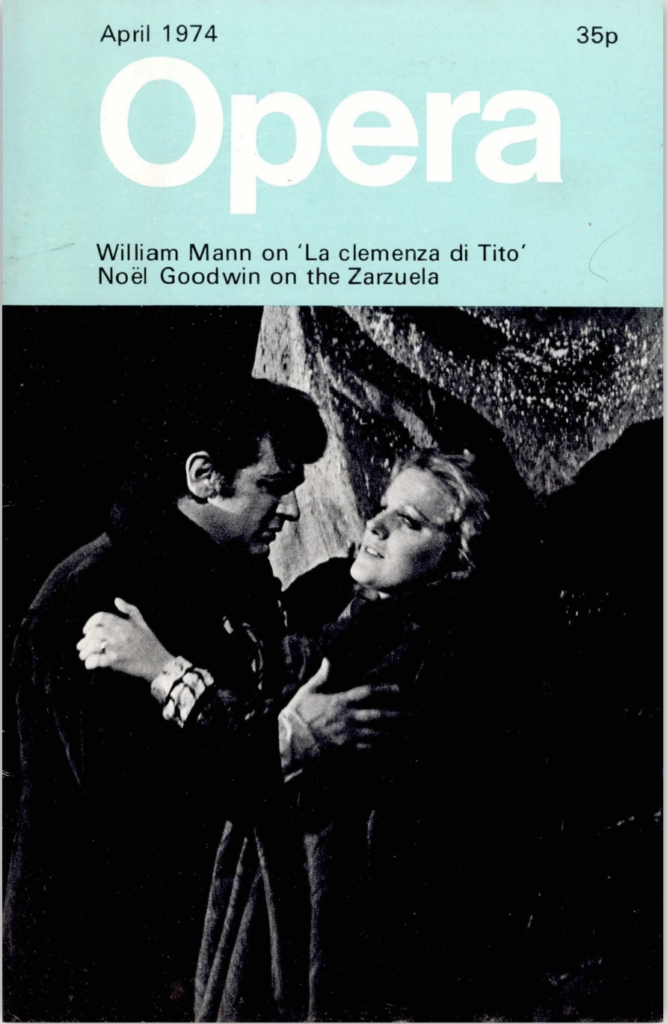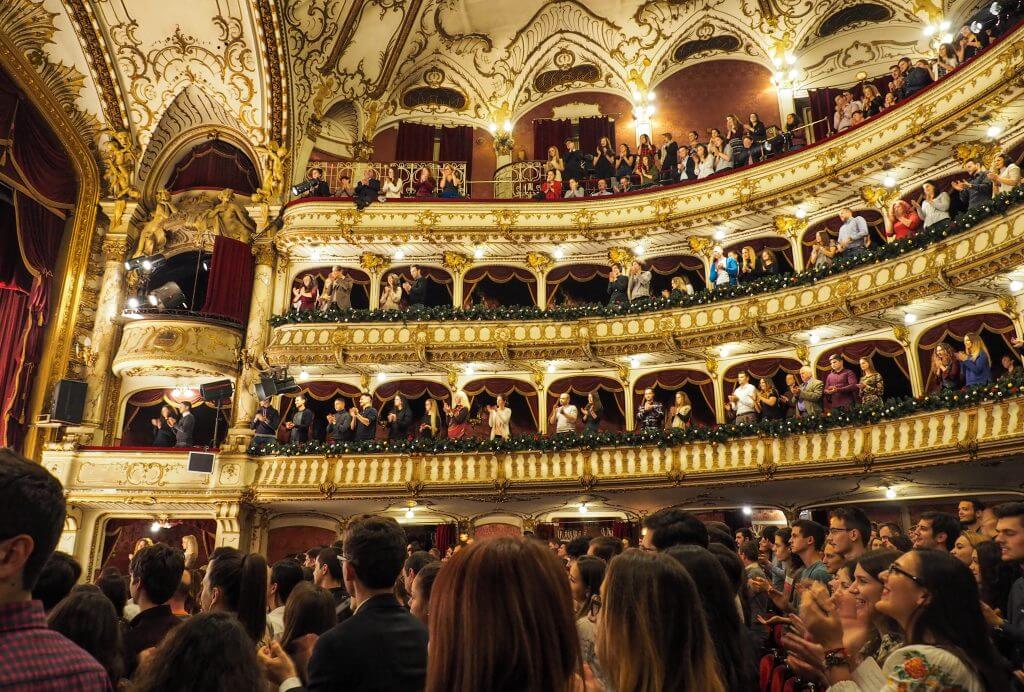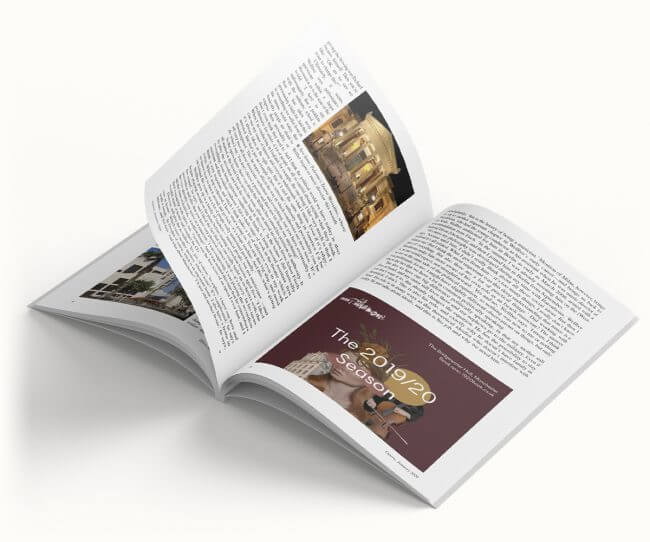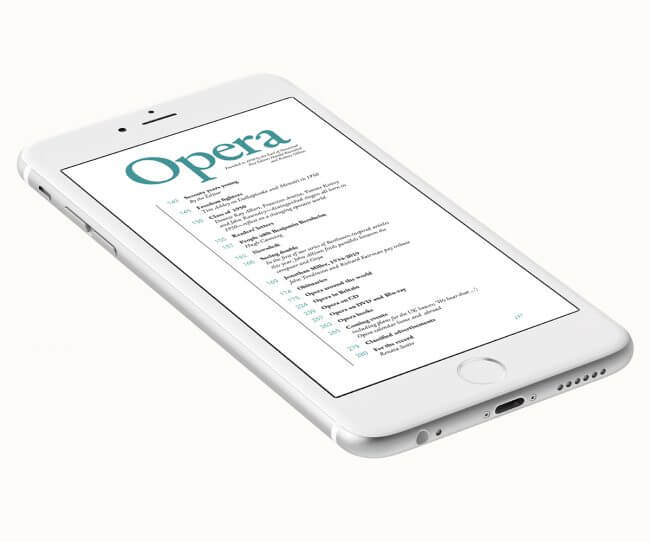Orpheus In Opera
March 2020 in Articles
Christopher Webber follows the Orpheus myth through opera
If art is old as time, the myth of Orpheus is old as art. Our need for order and harmony, the compulsion to ‘make’, to civilize, to impose ourselves on nature through art—to defeat death—runs deep, as Shakespeare reminds us in Henry VIII:
Orpheus with his lute made trees,
And the mountain tops that freeze,
Bow themselves when he did sing.
In Greek mythology, the father of Orpheus (‘orphan’, the man set apart) is Apollo, God of light and the mind. His birth gift was the first musical instrument, the lyre, by which the artist orders word and sound, controlling the physical world by an act of imagination. His wife is Eurydice (‘wide justice’) and their bond, the marriage of maker and moral law, secures our future. This is the master myth, from which all else flows.
At least, that is half the tale. After his attempt to rescue Eurydice from the underworld (probably a late addition to the stories) and her ‘second death’, Orpheus shuns the company of women, and is torn to death by the female followers of Dionysus, the Bacchantes, who gorge on his intimate parts. Ovid describes the sequel in his Metamorphoses:
The poet’s limbs lay scattered all around; but the River Hebrus received his head and lyre, and (a marvel!) while they floated in midstream, the lyre lamented mournfully; mournfully the lifeless tongue murmured; mournfully the banks echoed in reply.
Orpheus becomes nature. Art refuses to die, taking on a monstrous half-life of its own. Such horrors echo a parallel myth from Thrace (Bulgaria), in which Orpheus is the son not of Apollo but of the primitive wine-god Oeagrus, who ravishes Calliope, the muse of eloquence. She gives birth to the magician, the ‘bad dreamer’ who rouses the rabble to frenzy, inspiring bloody and unnatural acts, a champion of the disaffected who displaces Apollo with Dionysus, reason with animal instinct. Marcel Camus’s 1959 film Black Orpheus, set in a Brazilian favela, is among the most powerful retellings of this Thracian myth of change.
One of the attractions of English National Opera’s imaginatively conceived Orpheus season is that it models an Orphic globe, with the Apollonian Classicism of Gluck’s Orfeo ed Euridice at one pole and Philip Glass’s reframing of Jean Cocteau’s dark, Dionysian film Orphée at the other. To west and east lie two potent studies in meta-myth—that is, interpretations where interest in the characters is subsidiary to what the creators have to say about the myth itself. Offenbach’s satirical Orphée aux enfers and Birtwistle’s The Mask of Orpheus may not seem natural bedfellows, but both are operatic meta-myths in the crucial sense, using the legends to critique contemporary society, storytelling and even the concept of time.
Reason and light—the power of art to create and sustain beauty—naturally appealed to the writers and theorists in Renaissance Florence feeling their way towards ‘dramma per musica’. Although Angelo Poliziano’s Fabula di Orfeo, a play with music which pre-dates their movement by over a century, lies behind the early stage works about Orpheus and Eurydice, the insinuations of homosexuality with which he invested the death of the musician-mage have been airbrushed out in the experimental operas of Peri and Caccini. The poet Striggio initially provided an ambiguous ending for La favola d’Orfeo (1607), but by the time Monteverdi’s music was published, the opera ended in the triumph of reason, celebrating Orpheus’s ascent to the heavens: as Apollo tells him, ‘Why give yourself to grief and rage?’ Classical restraint—the victory of mind over matter—was to inform countless Orphean operas written over the next two centuries, achieving its definitive expression in the 1762 original, Viennese version of Gluck’s Orfeo ed Euridice.
Composers face a tough test here: if you’re ambitious enough to portray the master singer, whose music could change the world, you’d better believe that yours can do likewise. Gluck in particular, having set himself up as the reformer—purifier, even—of a lyric theatre allegedly fallen into decay, had to prove himself a modern Orpheus to show he was right. He just about pulled it off; though look under the bonnet and you’ll find that Orfeo ed Euridice is powered as much by the magician as by the Apollonian priest. After all, setting ‘Che farò’, the aria encapsulating the tragedy, in a jaunty major key is at some level a stunt, a brilliant piece of PR to bring in the punters and excite debate. It works beautifully, because the tune is catchy and great singers can make deep drama out of simple music, but as with all stage art, we know we’re allowing ourselves to be taken in.
Equally remarkable is the zeal with which admirers have rushed to the defence of Gluck’s fabricated ‘Classical purity’, whether we’re looking at Berlioz, outraged by the cheeky quotation of ‘Che farò’ in Offenbach’s 1858 operetta, or the translator Tom Hammond, voicing his objections to contraltos in the title role:
The deep, maternal contralto … cannot approach dramatic conviction. A woman’s voice inevitably deploys entirely extraneous and disturbing sexual overtones which are not only inappropriate to the personality of Orfeo but … do little to conjure up the elegiac and other-worldly character of the castrato voice. (Cambridge Opera Handbook, 1981)
We blessed spirits dwell in a more gender-fluid world, where sexual boundaries blur and ‘breeches roles’ are not automatically equated with titillation. But Hammond should not be held up to ridicule—after all, he’d heard Kathleen Ferrier and Janet Baker in the role and had to speak up for what he perceived as authenticity. Nor was he alone: John Eliot Gardiner at one time wrote that the idea of a female Orpheus was ‘alien, fudged, distorted’. What’s interesting here is the language, the sacred belief that Gluck’s music must transcend the ‘disturbing’ distortions of sexuality, taking us onto a higher, ‘elegiac and other-worldly’ plane. Such is the Classical ideal, of a pastoral paradise suspending time.
The raised eyebrow of irony is the nuclear weapon of operetta, that most cerebral of music-theatre forms. When Offenbach mockingly quotes ‘Che farò’, he reflects the secret thought of his audiences, who find its highfalutin idealism ludicrous—which, from the point of view of Dionysus-Orpheus, is pretty much right. In cutting Gluck down to size, Offenbach is hinting at a profound truth: that ‘pure’ Classicism requires trickery to work in theatre, itself the biggest trick of all. This is one, tiny example of the multiple strategies, involving satire, silliness and sexual provocation, employed in Orphée aux enfers as it invites us to view the Orpheus myth—and the musician’s role in society—through the prism of urban mores and public opinion. For Offenbach, the characters don’t signify. Art does.
Offenbach’s own art certainly ‘changed the world’ in the music he wrote for his Orphée, who is a salon violinist, not a singer. His signature tune may drive Eurydice mad, because she’s heard him practising it so often, but once we’ve encountered this moving waltz melody—very vocal in nature—we’re not likely to forget it. A well-sung ‘Che farò’ falls into the same category of rapt, searing beauty. Monteverdi’s dazzling pyrotechnics for Orfeo’s ‘Possente spirto’ hold
us spellbound by their
sheer strangeness—the song breathes air from another planet, like the simple yet expressive descending sequence, reinventing the modal lament of the lyre, with which Stravinsky opens his 1948 Orpheus ballet. All these are not only musical masterstrokes in themselves, but also well-bought tickets in the lottery of life, helping their creators satisfy the deep craving for immortality that drives us all to make whatever we can, as well as we can.
Not that this craving endears Orpheus to his public. It puts the spotlight on the cold, egotistical attitude of the singer-poet (the ‘orphan’ with the air of ‘being special’) towards the crowd. If he doesn’t keep his wits about him, he’ll be ripped to shreds sooner rather than later. Egotism is central to Cocteau’s 1950 Orphée, where Jean Marais’s anti-hero is a self-absorbed, arrogant writer, stumbling through a modern world booby-trapped with artistic rivalries, violence and mirror portals to the lower world, where he must face a tribunal of grey-suited judges and the personification of his own death. Shady fragments of the Thracian myth hover around the periphery of Cocteau’s vision—one of three films he made on the subject. Because Glass (1993) chose to set the original script, he wasn’t faced with the challenge of having to ‘write up’ to a composer-Orpheus, though his driving bass lines and revolving melodic patterns effectively remove Cocteau’s spiky tragi-comedy to a bleaker plane, animated by music, where death seems preferable to everyday realities. Gluck’s Elysian Fields ballet is evoked, but only as a deconstructed reminder of lost, pastoral perfection.
In Cocteau, Orpheus’s insufferable conceit also leads to conjugal breakdown. Soon after bringing his wife back from the dead, he stares her directly in the face, to get shot of her and get back to his writing. Male-female antagonism is always a vital cog in the machine: at the other end of the spectrum, Gluck’s Orpheus is guiltless, being goaded into the fatal glance by Eurydice’s recriminations and tearful insecurities—the frail woman is blamed for the husband’s tragedy. The mother of marital battles comes from Oskar Kokoschka, in an astonishingly wild 1918 libretto (for Ernst Krenek) which draws on psychoanalysis and his failed relationship with Alma Mahler. Orpheus and Eurydice spend three acts murdering one another: only when they die in the same instant can Eurydice’s imprisoned sister Psyche be united with Amor, who—unlike Gluck’s mover, shaker and ‘deus ex machina’—is never onstage.
A key character from the Greek myth only rarely seen onstage is Aristaeus (‘hero-man’), the beekeeper who seduces Eurydice away from a spouse too engrossed in his music to notice. In guilty flight after their copulation she is bitten by the snake and dies. The meta-mythologists Offenbach and Birtwistle do put Aristaeus on stage, though, along with the seduction. Indeed, The Mask of Orpheus (1986) divides all three roles in the domestic drama into three aspects: the Man/Woman, the Myth, and their underworld Avatar. In a work of massive complexity, where everything comes in threes—and this is only the first of his three operas around the subject—Birtwistle suspends time by simultaneously presenting past, present and future, from multiple perspectives. The opera is a mythic chapbook which covers all the bases: there’s even reference to Orpheus’s cameo role in Jason and the Argonauts, where he saves his companions in an earlier battle of the sexes, by out-singing the sirens.
The notion that there is a music whose modes are the elements, the concord of the planetary orbits, the chime of water and blood has never lost its metaphoric life. Orpheus is architect of myth, magician over savagery, and pilgrim toward death. (George Steiner, After Babel)
Yet in film and theatre, death is only another illusion, easily dissolved (in Cocteau/Glass and Birtwistle) through reversing time. The Orphic myths offer many deaths for the hero—suicide by hanging, a thunderbolt from Zeus for revealing the secrets of the heavens—but it is a third option, his brutal bludgeoning by the Bacchantes, that looms largest. In Ovid their fury springs from Orpheus’s rejection of women after the loss of Eurydice, in favour of the companionship of adolescent boys. Dürer’s richly symbolic woodcut Der Tod des Orpheus (1494) spells it out, on a placard pinned to a cross-like tree: ‘Orpheus, the first pederast’. Apollonian opera turns away in disgust; order and harmony must be protected, and a bright-trumpeted apotheosis will banish the shadow of perversity.
The death of Orpheus serves to reveal an uncomfortable truth: mastery comes at a cost, be it the sinister temptations presented to the god-like artist, or society’s violent deletion of the mage who can build and destroy at the touch of a string. Art will always be revered, always be suspect. And Orpheus will always rise again, to challenge death and time on behalf of the tribe.


